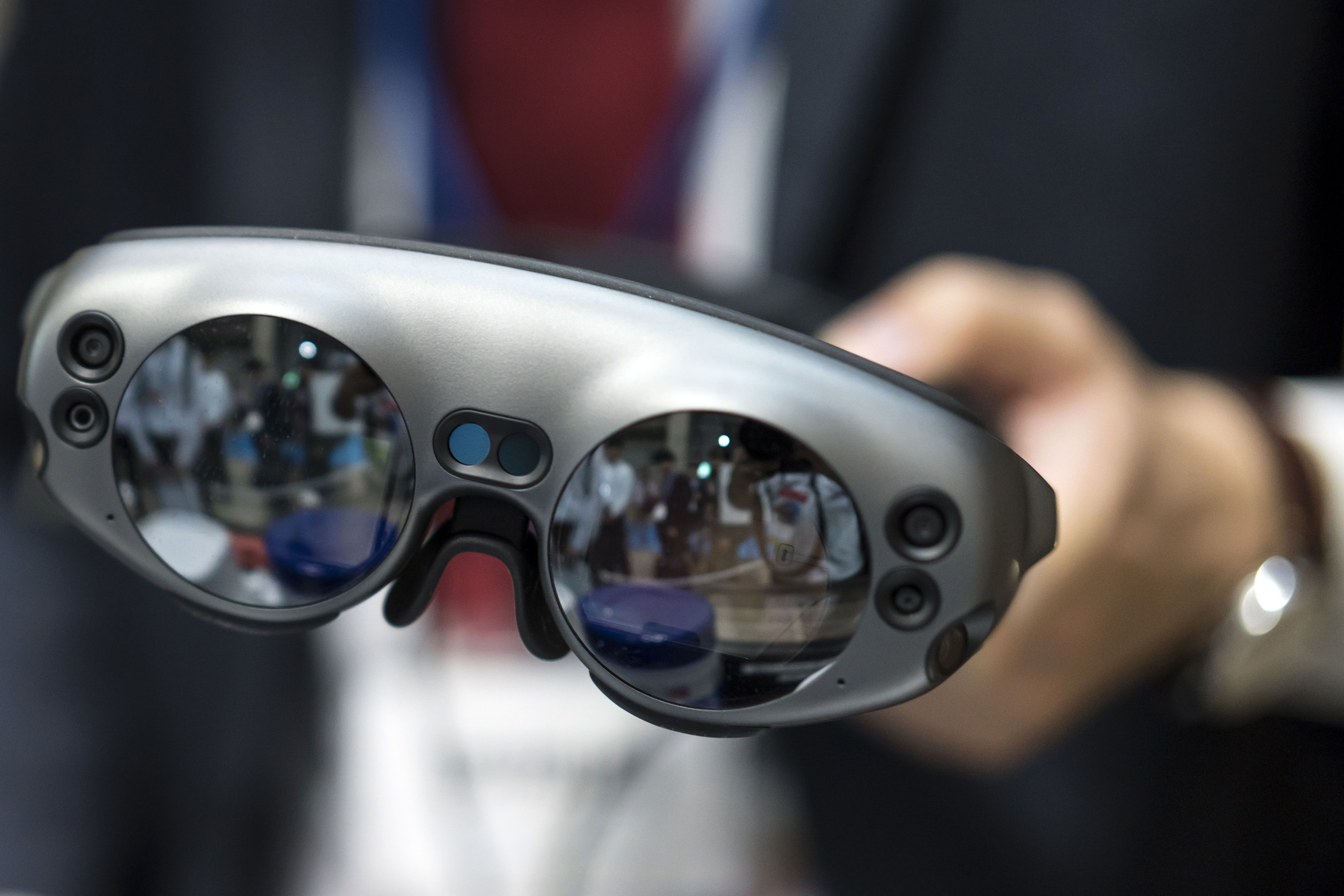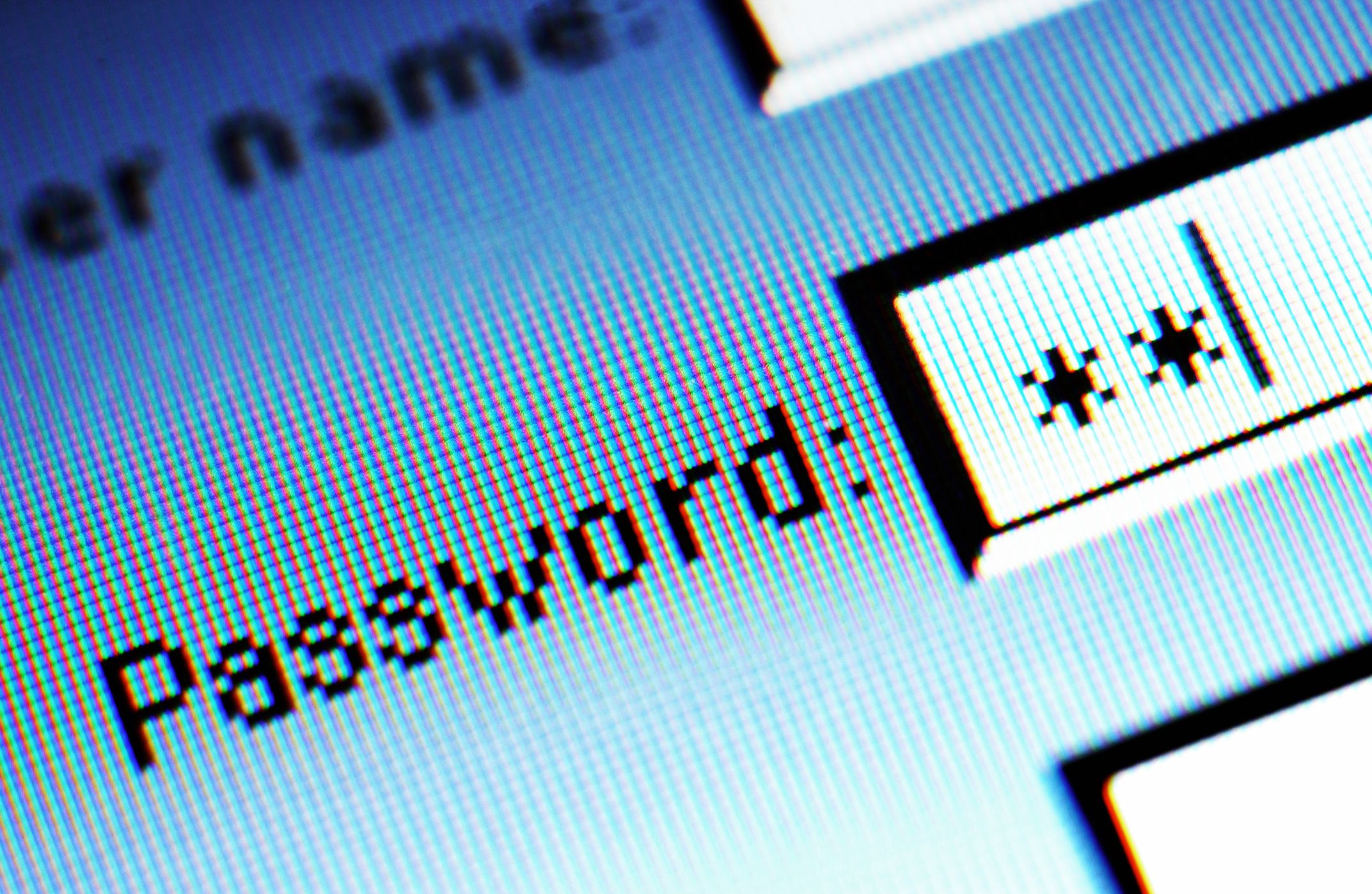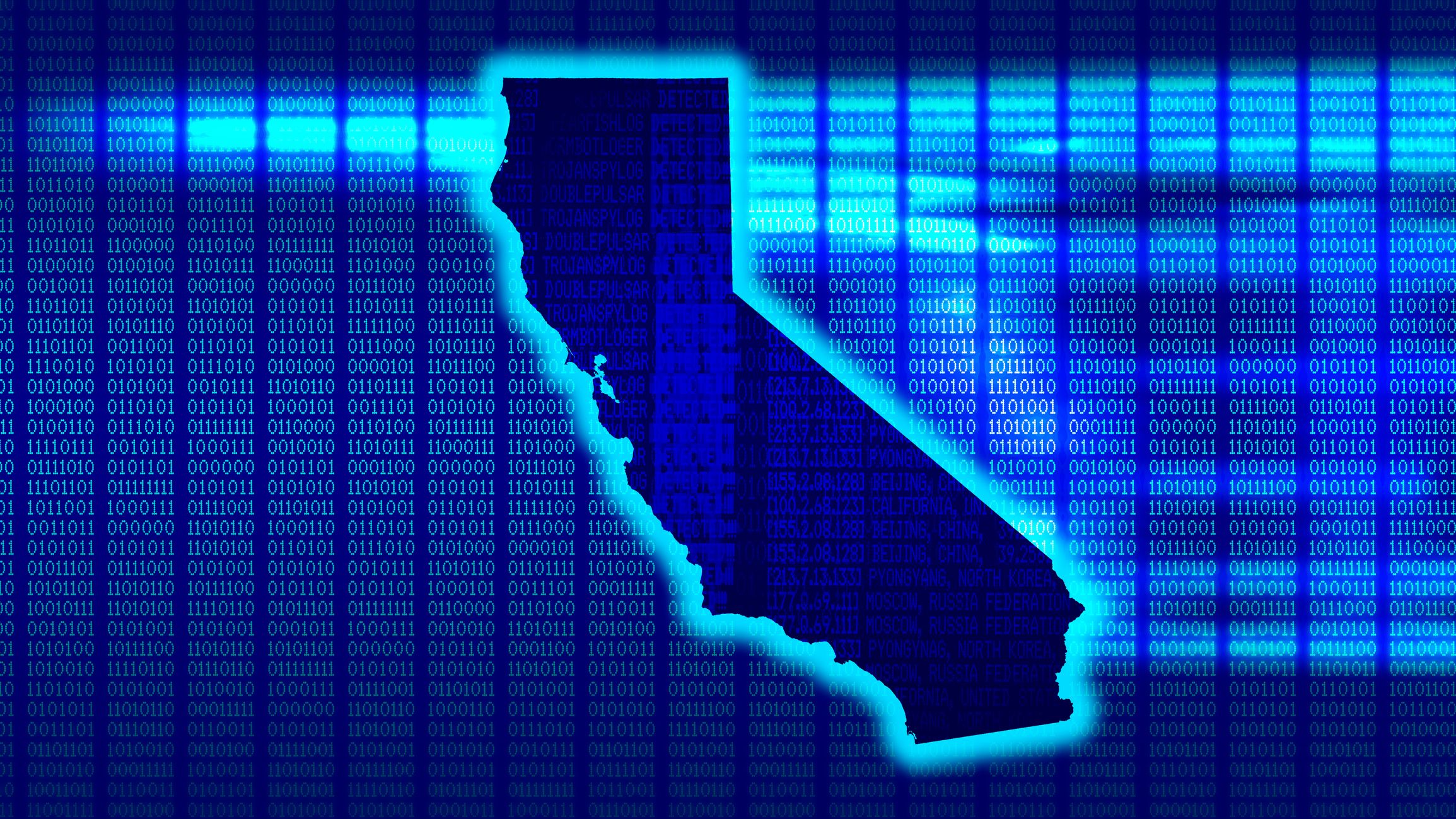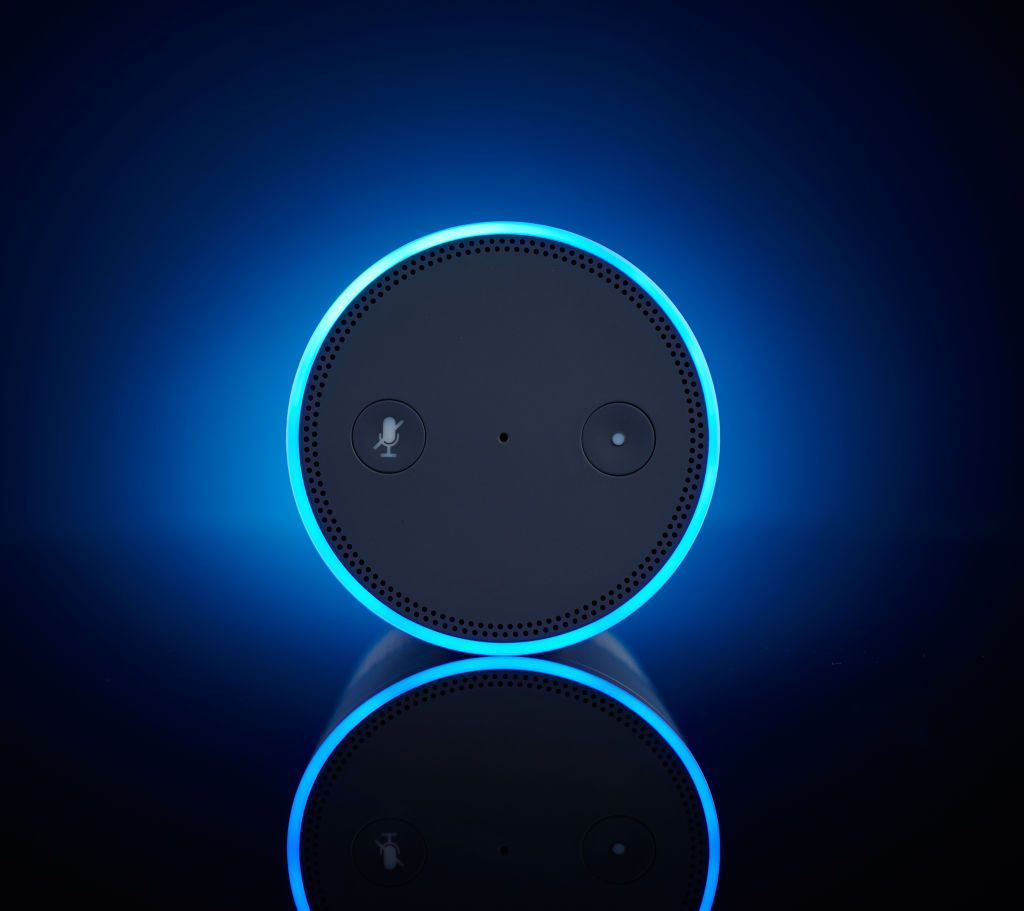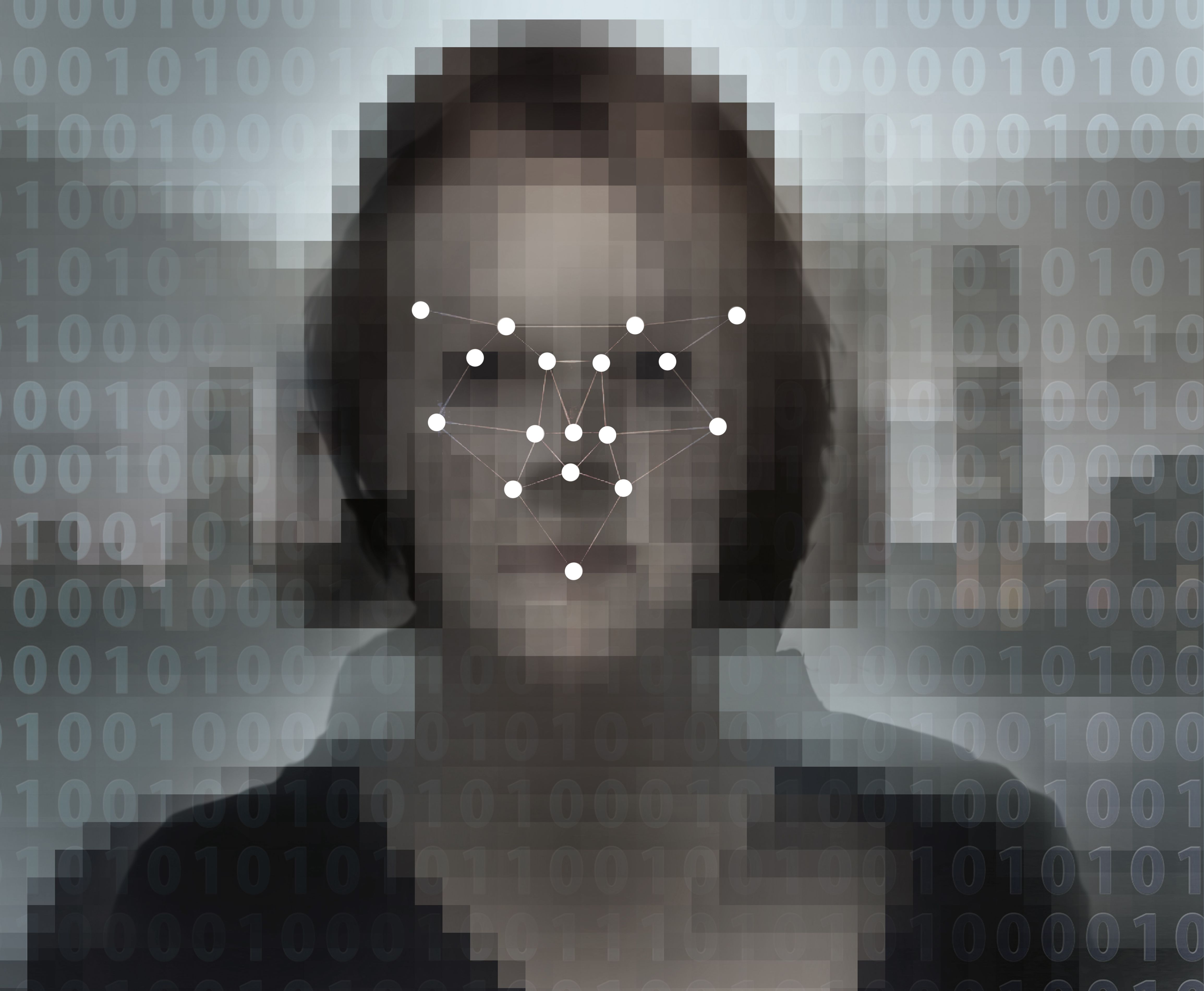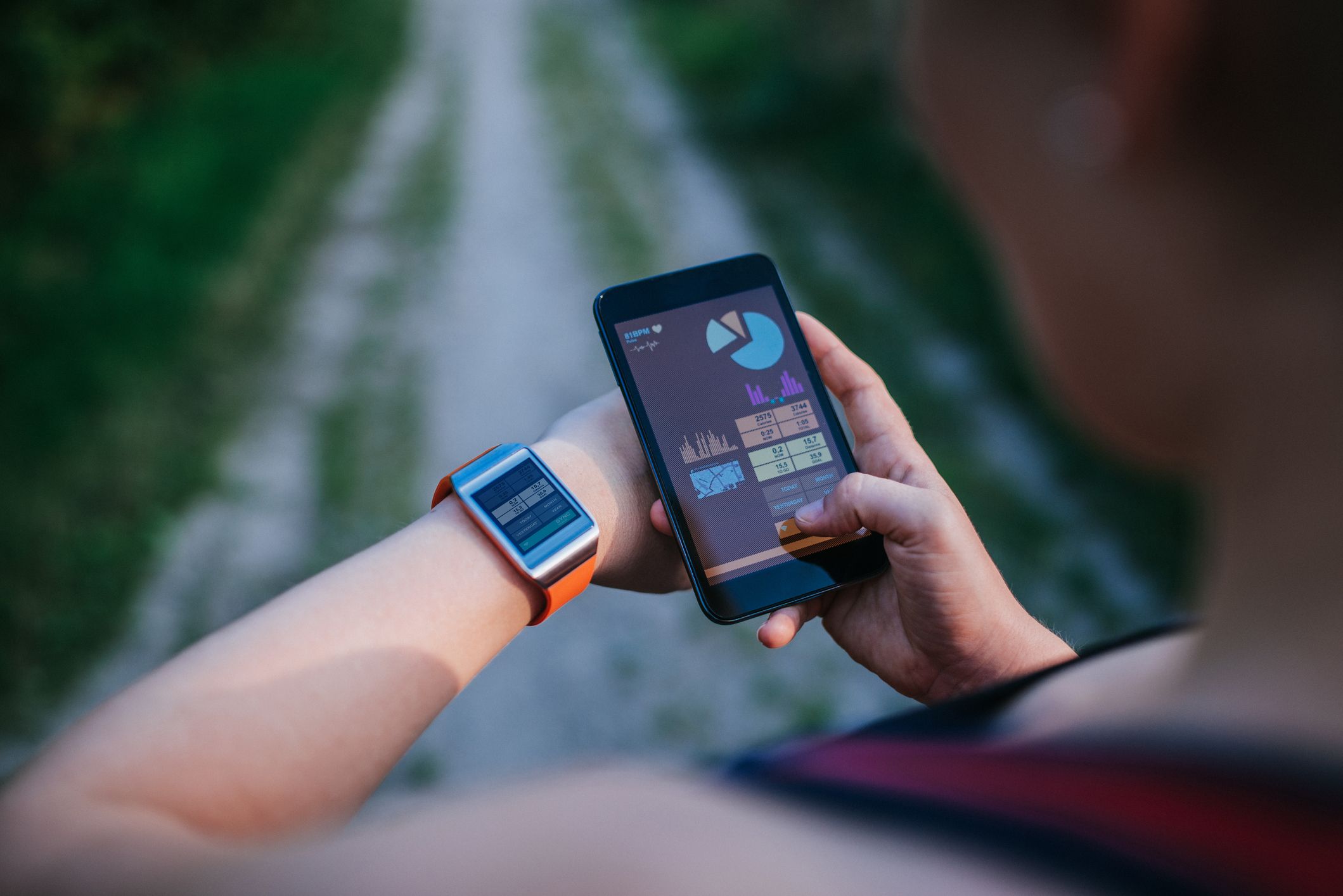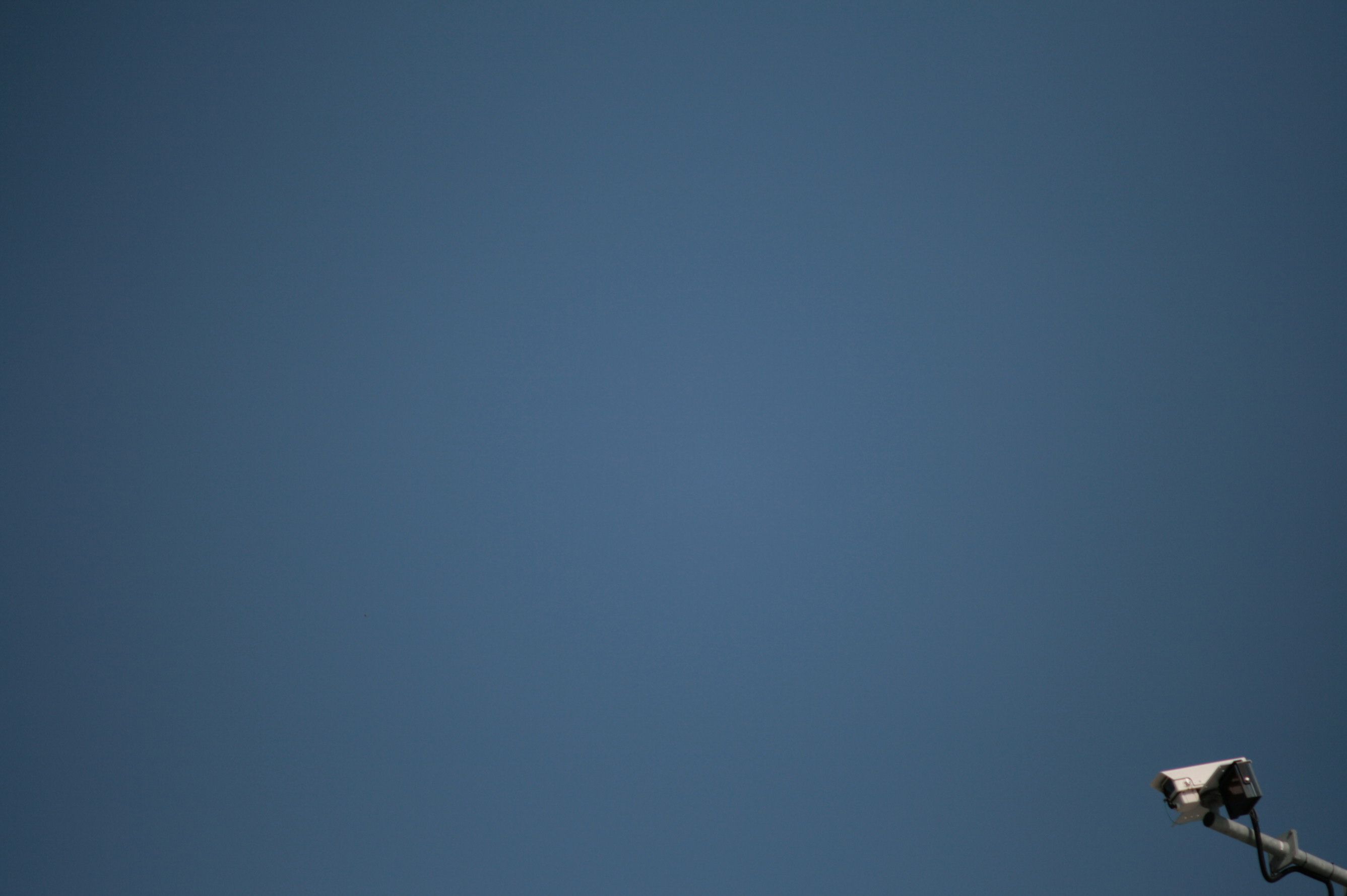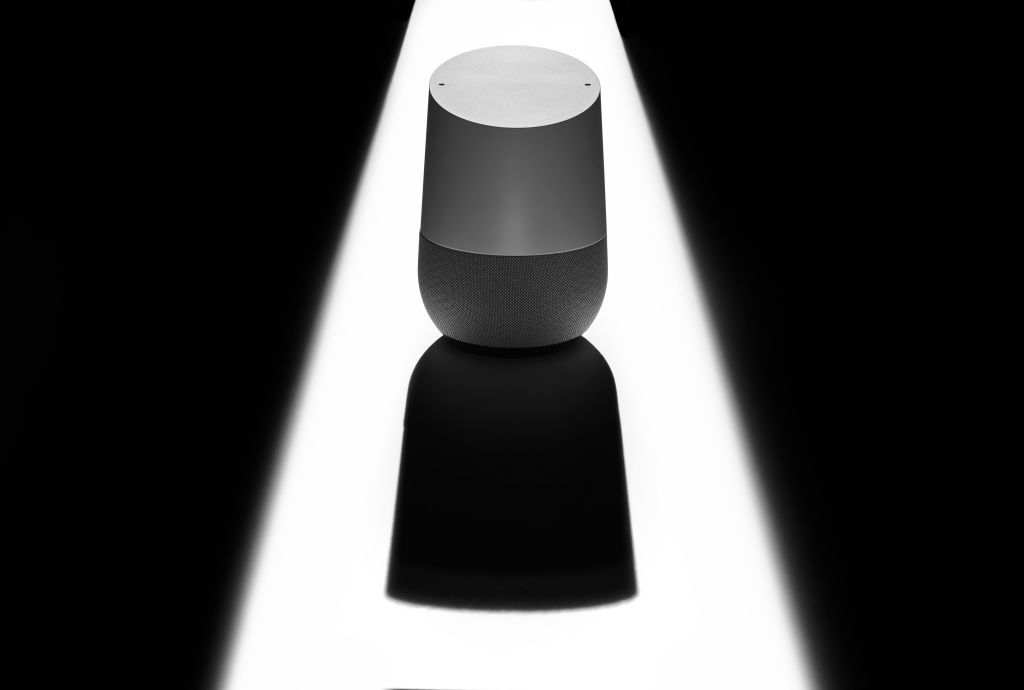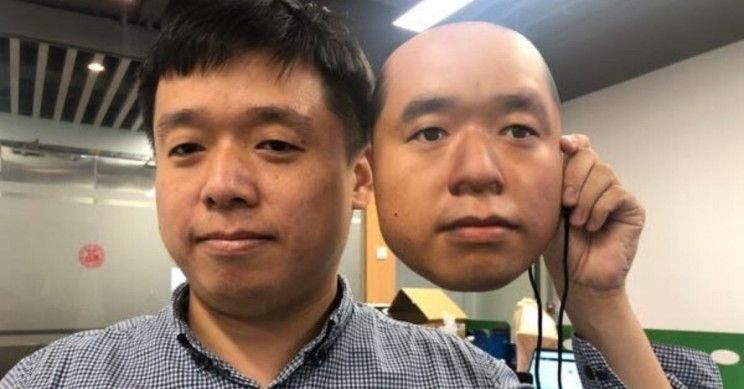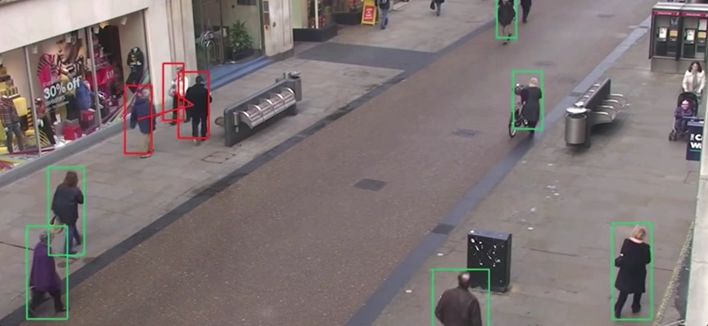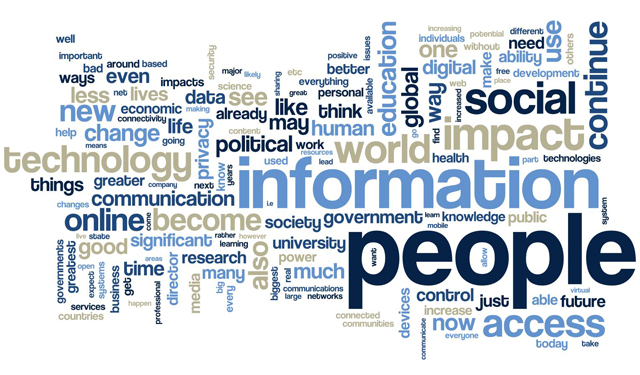How the internet will change our world
How the internet will change our world
How the internet will change our world
You are going to give a talk about the Internet. You will have to start in 1,5 minutes and speak for not more than 2 minutes (10-12 sentences). Remember to say:
— how many people in Russia use the Internet nowadays;
— what the Internet allows people to do;
— how the Internet will change our world;
— what your attitude towards the Internet is.
You have to talk continuously.
Just 20 years ago very few people in Russia knew about the Internet. Now the majority of Russian citizens cannot imagine their lives without it.
The development of the Internet brought people a lot of new opportunities. Nowadays people are not only able to find a job online, but to work online, travelling and earning money at the same time. Moreover, the Internet allows a huge amount of talented people to show their achievements to the whole world.
Some people predict that the Internet possibilities may be even frightening. It is a well-known fact, that most of the world`s money is stored in computers. There is a risk that some clever hackers are likely to use the Internet to steal it.
One more important thing, predicted by some experts, is that the information wars of the future may be fought on Websites and nobody can protect us from the complications and consequences.
I am not addictive, but I cannot imagine my life without the Internet. It offers me great opportunities and I try to use the best of them.
| Критерии оценивания ответа на задание С4 | Баллы |
|---|---|
| Решение коммуникативной задачи (К1) | |
| Задание выполнено полностью: цель общения достигнута, тема раскрыта в полном объёме (полно, точно и развёрнуто раскрыты все четыре аспекта, указанных в задании). Объём высказывания: 10–12 фраз | 3 |
| Задание выполнено: цель общения достигнута, НО тема раскрыта не в полном объёме (один аспект раскрыт не полностью). Объём высказывания: 8–9 фраз | 2 |
| Задание выполнено частично: цель общения достигнута частично, тема раскрыта в ограниченном объёме (один-два аспекта не раскрыты, два аспекта раскрыты не в полном объёме, остальные аспекты раскрыты полно и точно). Объём высказывания: 6–7 фраз | 1 |
| Задание не выполнено: цель общения не достигнута: три аспекта содержания не раскрыты*. Объём высказывания: 5 и менее фраз | 0 |
| Организация высказывания (К2) | |
| Высказывание логично и имеет завершённый характер; имеются вступительная и заключительная фразы, соответствующие теме. Средства логической связи используются правильно | 2 |
| Высказывание в основном логично и имеет достаточно завершённый характер, НО отсутствует вступительная заключительная фраза, имеется одно-два нарушения в использовании средств логической связи | 1 |
| Высказывание нелогично И/ИЛИ не имеет завершённого характера, вступительная и заключительная фразы отсутствуют; средства логической связи практически не используются, или допущены многочисленные ошибки в их использовании | 0 |
| Языковое оформление высказывания (К3) | |
| Использованный словарный запас, грамматические структуры, фонетическое оформление высказывания соответствуют поставленной задаче (допускается не более четырёх негрубых лексико-грамматических ошибок И/ИЛИ не более трёх негрубых фонетических ошибок) | 2 |
| Использованный словарный запас, грамматические структуры, фонетическое оформление высказывания соответствуют поставленной задаче (допускается не более пяти негрубых лексико- грамматических ошибок И/ИЛИ не более четырёх негрубых фонетических ошибок) | 1 |
| Понимание высказывания затруднено из-за многочисленных лексико- грамматических и фонетических ошибок (шесть и более лексико- грамматических ошибок И/ИЛИ пять и более фонетических ошибок) ИЛИ более трёх грубых ошибок | 0 |
| Максимальное количество баллов | 7 |
*Примечание. При получении экзаменуемым 0 баллов по критерию «Решение коммуникативной задачи» всё задание оценивается в 0 баллов.
What Will the Future of the Internet Look Like?
The internet will turn 52 this year, but what comes next could be even more revolutionary.
On October 29, 1969, a message was sent from a rather nondescript room at UCLA in Southern California to a Stanford Research Institute computer console in Menlo Park, California. It read simply “Lo,” though it was supposed to say “Login.” The system crashed before completing the task. This was the world’s first message sent via an interconnected computer network known as ARPANET. On this unassuming fall day, the modern internet as we now know it was conceived.
In the five decades since, the internet has transformed human existence. From how we wage war to how we make each other laugh, it’s unfathomable how much the internet has shaped life in that short amount of time.
But what will the future of the internet look like in 50 years? How will we solve the challenges that we are currently facing around privacy and data protection? Should we be hopeful—or fearful—for our changing digital world?
We asked these questions to a variety of experts, researchers, scientists, engineers, and futurists. The answers we got back were fascinating, clarifying, and somewhat scary.
An Increasingly Virtual World
In 2019, the Pew Research Center released its own data about the future of digital life after canvassing 530 experts. Lee Rainie, director of internet and tech research at Pew, was one of the co-authors of the study. He says that the answers were eye-opening in terms of how our digital presence will come to further define our existence. “[In their responses], they talked about what the definition of a human being, literally, will be once this technology is available for our bodies and brains.”
According to our experts, that will come sooner rather than later. Within only the next quarter century, the way we search or use the internet will be considered “archaically clunky,” writes Judith Donath, who is a researcher for the Berkman Klein Center at Harvard University and author of the 2014 book The Social Machine. Rather, our digital presence will not be separate from the physical world, but ingrained in it.
“Information will be displayed, floating in the air. the web will appear in the real world, not just on glass screens.”
“Gone will be keyboards, the mouse, and screens,” continues Donath.
Toby Negrin, Wikimedia Foundation’s Chief Product Officer, compared the internet to electricity as it becomes an “omnipresent utility, something we expect to always be available and around us. intertwined in our daily lives.”
Donath says that real-time information will forever be present for everything—and everyone—you cross paths with. “Strangers will be identified, with increasingly detailed information about them presented,” says Donath. “People will subscribe to different augmentations, much as we now subscribe to magazines.”
Rainie says that many of the experts he spoke to commented that separate internet-enabled devices will no longer exist. Instead, the internet will be pre-loaded into our consciousness.
“There’s this whole idea of a brain interface,” Rainie says. “If you only have to think and it will perform [the task] for you, how much easier is it to facilitate communication?”
New Forms of Communication
Our world has become smaller thanks to the digital age. No longer are one-word messages crashing in the middle of their transmission. But our experts agree that we are still evolving when it comes to internet communications. In the near-future, typing messages will go away in favor of verbal and auditory communications, much like what’s already been introduced with Apple’s Siri and Amazon’s Alexa.
“You won’t search anymore, you’ll just ask questions,” says Paul Jones, the founder of ibiblo, one of the internet’s largest collections of open source materials (like Project Gutenberg). “It will be more like having a conversation.”
Donath says that technological advancements will adapt to this new era of vocal communications. “Earbuds will [be] replaced by invisible implants that modulate all hearing—sometimes shutting out the surrounding soundscape in favor of the virtual one, sometimes amplifying a single nearby voice; effectively all of one’s hearing will be mediated through these audio implants,” she writes.
Both Jones and Donath separately noted that predictive technologies, essentially omnipresent autocorrect, will become more accurate which will make communication faster and require less brainpower. Also, due to our ability to mix speech with augmented reality, doors will open that will allow us to understand and communicate with everyone.
“Instead of learning new languages, we will just install a translation app that allows us to live-translate our own speech in real-time,” says Jillian York, Electronic Frontier Foundation’s director for international freedom of expression. Negrin agreed that communication will transform in the future. “Our entire knowledge ecosystem will exist online, enabling you to understand everyone’s point-of-view regardless of who they are and where they live, whenever you want it.”
To go along with vocalizations, Donath says that small gestures and gaze tracking will provide ways for us to communicate and interact with our environment more dynamically. This would also be the beginning of what Paul Jones calls “neuro-engagement.” As he describes it, this technology would be initially developed for those who cannot vocally communicate before being adopted by all. “It will be a mesh of connectivity between devices and [human] communication” where things are done via sight and thoughts.
The concept of communicating through brain waves and mind-reading has been a science-fiction favorite for years. David Brin, a Hugo-winning science-fiction writer himself, told Popular Mechanics how this could be technologically possible. “We’ll have ‘sub-vocal’ inputs that sense words you are about to say and heed them without you having to actually voice them aloud,” says Brin. “A new aspect of the dental profession will be installing controller devices that let you click or tongue inputs, silently and invisibly.”
Rainie says in Pew’s surveying, this mode of communication and interacting with the world came up as well. However, it was often qualified with a moral quandary. “When people’s intentions and actions can be anticipated, that’s a brand new human circumstance all together,” says Rainie. “But this makes things more menacing in some of these experts’ minds because if you can figure out what’s going on in people’s brains, you don’t even have to surveil them.”
The End of Privacy
Every time you ask Alexa to send more cat food, you are giving a billion-dollar company more information about who you are. Mainly, that you have a cat who likes to eat. But also credit card information, addresses, telephone numbers, and so on. The decision has been made to sacrifice some of this potentially private information for the sake of convenience.
This will only increase. Jones says that these new technologies will become increasingly good at knowing what we want. “If you have certain habits, [these devices are] going to help you with those habits,” says Jones. “They’ll be anticipating. It will be creepy, but familiar.”
Of course, for companies like Amazon, this is how they make money. “The trillion dollar digital economy is built on harvesting people’s personal data,” writes Liebhold.
Due to this, how companies market and advertise will change dramatically. It will become much more personalized and significantly smaller. So, the opposite of Blade Runner’s vision of giant, 3D holograms.
“Your wrist will briefly flicker with a beautiful bracelet you could buy, you’ll see glimpses of your living room with a nicer rug and newer furniture,” says Donath. So-called “push advertising” will be replaced by a “pull” in the form of a shopping assistant, says Brin. “When that happens, advertising will collapse.”
Rainie says this, of course, comes with a price. “There’s a trade-off. Experts believe that we will sacrifice more of our autonomy for the sake of convenience.”
A Health Data Revolution
The very beginning of the bio data revolution is already upon us with the emergence of wearable, constantly connected tech that collects information about our health. There’s an overall belief from the experts we spoke with that this could be a great thing for a society, the ability to actually have reams of data that can be applied to create better health care practices.
“We’ll have a lot more information about how people really eat, exercise, and conduct their daily lives, which will allow doctors and researchers to better tailor programs to serve our needs and help us become healthier,” writes York.
“If the flow of information goes in one direction, then we will have Big Brother forever.”
Pamela Rutledge, a media psychologist agrees. “Biodata has the potential to improve [the] delivery of needed medical care, educational support, and other needs.”
But, of course, it all comes down to who possesses this data and how they use it. “This type of data capture has a really high upside,” explains Rainie. “If you aggregated at the population scale, you can get a lot better insight into what’s going on not only in the public health arena, but also in the particular disease realm.” While the experts that the Pew Research Center canvassed had a positive outlook, it came with a warning. “But there’s a sense that at the individual level, this can do real harm.”
Meanwhile, predictions about how our health and genetics data could be used to divide us, as a species, have run rampant in other spaces.
“Your biodata will be as widely known as the color of the shirt you wear,” predicts Brin. “Whether or not that’s scary depends on whether it can be used to harm you.”
A Growing Pessimism
Everyone we talked to wanted to be optimistic that the future of the internet will mean harmony, togetherness, better communication, free-flowing information, more convenience, and a healthier world. But all of that hope came with a ton of caveats and qualifiers.
“There are big, complicated problems that we are still wrestling with,” says Rainie about the responses he received. “It feels like a transition or inflection point. We’ve got to fix problems now and make sure the worst doesn’t happen.”
Part of this, like with every new technology, is that it takes time to fully understand the implications of the internet. Toby Negrin from Wikimedia Foundation says that “we’re in the adolescence of the internet at best,” and still have a long way to go to really comprehend what it all means.
“As complexity increases, so do the number of vulnerabilities,” says Liebhold. He says it can take up to a decade to have complete insight into all of the complexities, both positive and negative, of a new technology.
“We’re in the adolescence of the internet at best.”
The ability of government to deal with what’s next also came up often. No one expressed much optimism around that. “Governments [are] lacking the technical sophistication to appropriately offset, regulate, or even find solutions,” writes Rutledge.
This new state of being will require worldwide decisions and a unified response. “Experts say that localized responses to this will be insufficient,” says Rainie. “They talk about global treaties and international agreements. This [will] all need to occur on a global scale.” Besides perhaps the ISS and the Paris climate agreement (mostly), the world often has a hard time working together for the greater good.
There’s also substantial fear that governments, particularly more authoritative ones, will use these new technologies for their own purposes. “Governments have repeatedly demonstrated that they have the upper hand,” says York. “And I’m scared that we’ll see even more restrictions on what we can say and do online.” Brin warns that 1984 may be in our future and not in our past. “If the flow of information goes in one direction, then we will have Big Brother forever.”
Jones asks if this is the end of open sourced information, something he knows well as the founder of ibiblio. “Can information stay free?” Paul Jones asks.“I used to think so, but now I think less so.”
In the end, how we deal with new technology and what the future holds for us in this new digital age may come down to how we act as humans. “Technology has always been an amplifier of human intention,” comments Negrin.
Digital Life in 2025
Experts predict the Internet will become ‘like electricity’ — less visible, yet more deeply embedded in people’s lives for good and ill
Summary: 15 Theses About the Digital Future
The world is moving rapidly towards ubiquitous connectivity that will further change how and where people associate, gather and share information, and consume media. A canvassing of 2,558 experts and technology builders about where we will stand by the year 2025 finds striking patterns in their predictions. The invited respondents were identified in previous research about the future of the Internet, from those identified by the Pew Research Center’s Internet Project, and solicited through major technology-oriented listservs. They registered their answers online between November 25, 2013 and January 13, 2014.
In their responses, these experts foresee an ambient information environment where accessing the Internet will be effortless and most people will tap into it so easily it will flow through their lives “like electricity.” They predict mobile, wearable, and embedded computing will be tied together in the Internet of Things, allowing people and their surroundings to tap into artificial intelligence-enhanced cloud-based information storage and sharing. As Dan Lynch, founder of Interop and former director of computing facilities at SRI International, wrote, “The most useful impact is the ability to connect people. From that, everything flows.”
To a notable extent, the experts agree on the technology change that lies ahead, even as they disagree about its ramifications. Most believe there will be:
These experts expect existing positive and negative trends to extend and expand in the next decade, revolutionizing most human interaction, especially affecting health, education, work, politics, economics, and entertainment. Most say they believe the results of that connectivity will be primarily positive. However, when asked to describe the good and bad aspects of the future they foresee, many of the experts can also clearly identify areas of concern, some of them extremely threatening. Heightened concerns over interpersonal ethics, surveillance, terror, and crime, may lead societies to question how best to establish security and trust while retaining civil liberties.
Overall, these expert predictions can be grouped into 15 identifiable theses about our digital future – eight of which we characterize as being hopeful, six as concerned, and another as a kind of neutral, sensible piece of advice that the choices that are made now will shape the future. Many involve similar views of the ways technology will change, but differ in their sense of the impact of those technical advances. They are listed below, numbered for the sake of convenience to readers navigating this document, not in a rank ordering.
More-hopeful theses
1) Information sharing over the Internet will be so effortlessly interwoven into daily life that it will become invisible, flowing like electricity, often through machine intermediaries.
David Clark, a senior research scientist at MIT’s Computer Science and Artificial Intelligence Laboratory, noted, “Devices will more and more have their own patterns of communication, their own ‘social networks,’ which they use to share and aggregate information, and undertake automatic control and activation. More and more, humans will be in a world in which decisions are being made by an active set of cooperating devices. The Internet (and computer-mediated communication in general) will become more pervasive but less explicit and visible. It will, to some extent, blend into the background of all we do.”
Joe Touch, director at the University of Southern California’s Information Sciences Institute, predicted, “The Internet will shift from the place we find cat videos to a background capability that will be a seamless part of how we live our everyday lives. We won’t think about ‘going online’ or ‘looking on the Internet’ for something — we’ll just be online, and just look.”
2) The spread of the Internet will enhance global connectivity that fosters
more planetary relationships and less ignorance.
Bryan Alexander, senior fellow at the National Institute for Technology in Liberal Education, wrote, “It will be a world more integrated than ever before. We will see more planetary friendships, rivalries, romances, work teams, study groups, and collaborations.”
Paul Jones, a professor at the University of North Carolina and founder of ibiblio.org, responded, “Television let us see the Global Village, but the Internet let us be actual Villagers.”
Tim Bray, an active participant in the Internet Engineering Task Force (IETF) and technology industry veteran, noted, “I expect the miasma of myth and ignorance and conspiracy theory to recede to dark corners of the discourse of civilization, where nice people don’t go. The change in the emotional landscape conferred by people being able to communicate very cheaply irrespective of geography is still only dimly understood.”
3) The Internet of Things, artificial intelligence, and big data will make people more aware of their world and their own behavior.
Patrick Tucker, author of The Naked Future: What Happens In a World That Anticipates Your Every Move?, wrote, “When the cost of collecting information on virtually every interaction falls to zero, the insights that we gain from our activity, in the context of the activity of others, will fundamentally change the way we relate to one another, to institutions, and with the future itself. We will become far more knowledgeable about the consequences of our actions; we will edit our behavior more quickly and intelligently.”
Judith Donath, a fellow at Harvard University’s Berkman Center for Internet and Society, responded, “We’ll have a picture of how someone has spent their time, the depth of their commitment to their hobbies, causes, friends, and family. This will change how we think about people, how we establish trust, how we negotiate change, failure, and success.”
4) Augmented reality and wearable devices will be implemented to monitor and give quick feedback on daily life, especially tied to personal health.
Daren C. Brabham, a professor at the Annenberg School for Communication & Journalism, University of Southern California, predicted, “We will grow accustomed to seeing the world through multiple data layers. This will change a lot of social practices, such as dating, job interviewing and professional networking, and gaming, as well as policing and espionage.”
Aron Roberts, software developer at the University of California-Berkeley, said, “We may well see wearable devices and/or home and workplace sensors that can help us make ongoing lifestyle changes and provide early detection for disease risks, not just disease. We may literally be able to adjust both medications and lifestyle changes on a day-by-day basis or even an hour-by-hour basis, thus enormously magnifying the effectiveness of an ever more understaffed medical delivery system.”
5) Political awareness and action will be facilitated and more peaceful change and public uprisings like the Arab Spring will emerge.
Rui Correia, director of Netday Namibia, a non-profit supporting innovations in information technology for education and development, wrote, “With mobile technologies and information-sharing apps becoming ubiquitous, we can expect some significant improvement in the awareness of otherwise illiterate and ill-informed rural populations to opportunities missed out by manipulative and corrupt governments. Like the Arab Spring, we can expect more and more uprisings to take place as people become more informed and able to communicate their concerns.”
Nicole Ellison, an associate professor in the School of Information at the University of Michigan, predicted, “As more of the global population comes online, there will be increased awareness of the massive disparities in access to health care, clear water, education, food, and human rights.”
6) The spread of the ‘Ubernet’ will diminish the meaning of borders, and new ‘nations’ of those with shared interests may emerge and exist beyond the capacity of current nation-states to control.
David Hughes, an Internet pioneer, who from 1972 worked in individual to/from digital telecommunications, responded, “All 7-plus billion humans on this planet will sooner or later be ‘connected’ to each other and fixed destinations, via the Uber(not Inter)net. That can lead to the diminished power over people’s lives within nation-states. When every person on this planet can reach, and communicate two-way, with every other person on this planet, the power of nation-states to control every human inside its geographic boundaries may start to diminish.”
JP Rangaswami, chief scientist for Salesforce.com, observed, “The problems that humanity now faces are problems that can’t be contained by political borders or economic systems. Traditional structures of government and governance are therefore ill-equipped to create the sensors, the flows, the ability to recognize patterns, the ability to identify root causes, the ability to act on the insights gained, the ability to do any or all of this at speed, while working collaboratively across borders and time zones and sociopolitical systems and cultures. From climate change to disease control, from water conservation to nutrition, from the resolution of immune-system-weakness conditions to solving the growing obesity problem, the answer lies in what the Internet will be in decades to come. By 2025, we will have a good idea of its foundations.”
7) The Internet will become ‘the Internets’ as access, systems, and principles are renegotiated
David Brin, author and futurist, responded, “There will be many Internets. Mesh networks will self-form and we’ll deputize sub-selves to dwell in many places.”
Sean Mead, senior director of strategy and analytics for Interbrand, predicted, “The Internet will generate several new related networks. Some will require verified identification to access, while others will promise increased privacy.”
Ian Peter, pioneer Internet activist and Internet rights advocate, wrote, “The Internet will fragment. Global connectivity will continue to exist, but through a series of separate channels controlled by a series of separate protocols. Our use of separate channels for separate applications will be necessitated by security problems, cyber policy of nations and corporations, and our continued attempts to find better ways to do things.”
8) An Internet-enabled revolution in education will spread more opportunities, with less money spent on real estate and teachers.
The biggest impact on the world will be universal access to all human knowledge. The smartest person in the world currently could well be stuck behind a plow in India or China. Enabling that person — and the millions like him or her — will have a profound impact on the development of the human race. Cheap mobile devices will be available worldwide, and educational tools like the Khan Academy will be available to everyone. This will have a huge impact on literacy and numeracy and will lead to a more informed and more educated world population. Hal Varian, chief economist for Google
A generally hopeful summary comes from Doc Searls, journalist and director of ProjectVRM at Harvard’s Berkman Center for Internet and Society, observed, “Of course, there will be bad acting by some, taking advantage of organizational vulnerabilities and gaming systems in other ways. Organizations in the meantime will continue rationalizing negative externalities, such as we see today with pollution of the Internet’s pathways by boundless wasted advertising messages, and bots working to game the same business. But … civilization deals with bad acting through development of manners, norms, laws and regulations. Expect all of those to emerge and evolve over the coming years. But don’t expect the Internet to go away … Will the Internet make it possible for our entire civilization to collapse together, in one big awful heap? Possibly. But the Internet has already made it possible for us to use one of our unique graces — the ability to share knowledge — for good, and to a degree never before possible.”
Less-hopeful theses
9) Dangerous divides between haves and have-nots may expand, resulting in resentment and possible violence.
Oscar Gandy, an emeritus professor at the Annenberg School, University of Pennsylvania, explained, “We have to think seriously about the kinds of conflicts that will arise in response to the growing inequality enabled and amplified by means of networked transactions that benefit smaller and smaller segments of the global population. Social media will facilitate and amplify the feelings of loss and abuse. They will also facilitate the sharing of examples and instructions about how to challenge, resist, and/or punish what will increasingly come to be seen as unjust.”
10) Abuses and abusers will ‘evolve and scale.’ Human nature isn’t changing; there’s laziness, bullying, stalking, stupidity, pornography, dirty tricks, crime, and those who practice them have new capacity to make life miserable for others.
Llewellyn Kriel, CEO and editor in chief of TopEditor International Media Services, predicted, “Everything — every thing — will be available online with price tags attached. Cyber-terrorism will become commonplace. Privacy and confidentiality of any and all personal will become a thing of the past. Online ‘diseases’ — mental, physical, social, addictions (psycho-cyber drugs) — will affect families and communities and spread willy-nilly across borders. The digital divide will grow and worsen beyond the control of nations or global organizations such as the UN. This will increasingly polarize the planet between haves and have-nots. Global companies will exploit this polarization. Digital criminal networks will become realities of the new frontiers. Terrorism, both by organizations and individuals, will be daily realities. The world will become less and less safe, and only personal skills and insights will protect individuals.”
An antispam and security architect predicted, “There will be an erosion of privacy and the use of dirty-tricks social media will emerge more and more in election campaigns. Abusers evolve and scale far more than regular Internet users.”
A retired management consultant to a large international corporation wrote, “There will be greater group-think, group-speak and mob mentality … More uninformed individuals will influence others to the detriment of standard of living and effective government.”
11) Pressured by these changes, governments and corporations will try to assert power — and at times succeed — as they invoke security and cultural norms.
Paul Babbitt, an associate professor at Southern Arkansas University, predicted, “Governments will become much more effective in using the Internet as an instrument of political and social control. That is, filters will be increasingly valuable and important, and effective and useful filters will be able to charge for their services. People will be more than happy to trade the free-wheeling aspect common to many Internet sites for more structured and regulated environments.”
Anoop Ghanwani, a distinguished engineer at Dell, said, “Regulation will always stand in the way of anything significant happening.”
12) People will continue — sometimes grudgingly — to make tradeoffs favoring convenience and perceived immediate gains over privacy; and privacy will be something only the upscale will enjoy.
An anonymous respondent wrote, “Yes, the information we want will increasingly find its way to us, as networks learn to accurately predict our interests and weaknesses. But that will also tempt us to stop seeking out knowledge, narrowing our horizons, even as we delve evermore deep. The privacy premium may also be a factor: only the relatively well-off (and well-educated) will know how to preserve their privacy in 2025.”
13) Humans and their current organizations may not respond quickly enough to challenges presented by complex networks.
Randy Kluver, an associate professor of communication at Texas A&M University, responded, “The most neglected aspect of the impact is in the geopolitics of the Internet. There are very few experts focused on this, and yet the rise of digital media promises significant disruption to relations between and among states. Some of the really important dimensions include the development of transnational political actors/movements, the rise of the virtual state, the impact of digital diplomacy efforts, the role of information in undermining state privilege (think Wikileaks), and … the development of cyber-conflict (in both symmetric and asymmetric forms).”
A librarian shared a quote from Albert Einstein: “It has become appallingly clear that our technology has surpassed our humanity.”
14) Most people are not yet noticing the profound changes today’s communications networks are already bringing about; these networks will be even more disruptive in the future.
Nishant Shah, visiting professor at the Centre for Digital Cultures at Leuphana University, Germany, observed, “It is going to systemically change our understandings of being human, being social, and being political. It is not merely a tool of enforcing existing systems; it is a structural change in the systems that we are used to. And this means that we are truly going through a paradigm shift — which is celebratory for what it brings, but it also produces great precariousness because existing structures lose meaning and valence, and hence, a new world order needs to be produced in order to accommodate for these new modes of being and operation. The greatest impact of the Internet is what we are already witnessing, but it is going to accelerate.”
A summary of the less-hopeful theses comes from Bob Briscoe, chief researcher in networking and infrastructure for British Telecom, who predicted, “The greatest impacts of the Internet will continue to be the side-effects that tower so high that we do not notice they are continuing to grow far above us: 1) More people will lose their grounding in the realities of life and work, instead considering those aspects of the world amenable to expression as information as if they were the whole world. 2) The scale of the interactions possible over the Internet will tempt more and more people into more interactions than they are capable of sustaining, which on average will continue to lead each interaction to be more superficial. 3) Given there is strong evidence that people are much more willing to commit petty crimes against people and organizations when they have no face-to-face interaction, the increasing proportion of human interactions mediated by the Internet will continue the trend toward less respect and less integrity in our relations.”
Advice: Make good choices today
15) Foresight and accurate predictions can make a difference; ‘The best way to predict the future is to invent it.’
Robert Cannon, Internet law and policy expert, wrote, “The Internet, automation, and robotics will disrupt the economy as we know it. How will we provide for the humans who can no longer earn money through labor? The opportunities are simply tremendous. Information, the ability to understand that information, and the ability to act on that information will be available ubiquitously … Or we could become a ‘brave new world’ where the government (or corporate power) knows everything about everyone everywhere and every move can be foreseen, and society is taken over by the elite with control of the technology… The good news is that the technology that promises to turn our world on its head is also the technology with which we can build our new world. It offers an unbridled ability to collaborate, share, and interact. ‘The best way to predict the future is to invent it.’ It is a very good time to start inventing the future.”
Sonigitu Asibong Ekpe, a consultant with the AgeCare Foundation, a non-profit organization, observed, “The most significant impact of the Internet is getting us to imagine different paths that the future may take. These paths help us to be better prepared for long-term contingencies; by identifying key indicators, and amplifying signals of change, they help us ensure that our decisions along the way are flexible enough to accommodate change… That billions more people are poised to come online in the emerging economies seems certain. Yet much remains uncertain: from who will have access, how, when, and at what price to the Internet’s role as an engine for innovation and the creation of commercial, social, and human value. As users, industry players, and policymakers, the interplay of decisions that we make today and in the near future will determine the evolution of the Internet and the shape it takes by 2025, in both intended and unintended ways. Regardless of how the future unfolds, the Internet will evolve in ways we can only begin to imagine. By allowing ourselves to explore and rehearse divergent and plausible futures for the Internet, not only do we prepare for any future, we can also help shape it for the better.”
How the Internet of Things Will Change the World
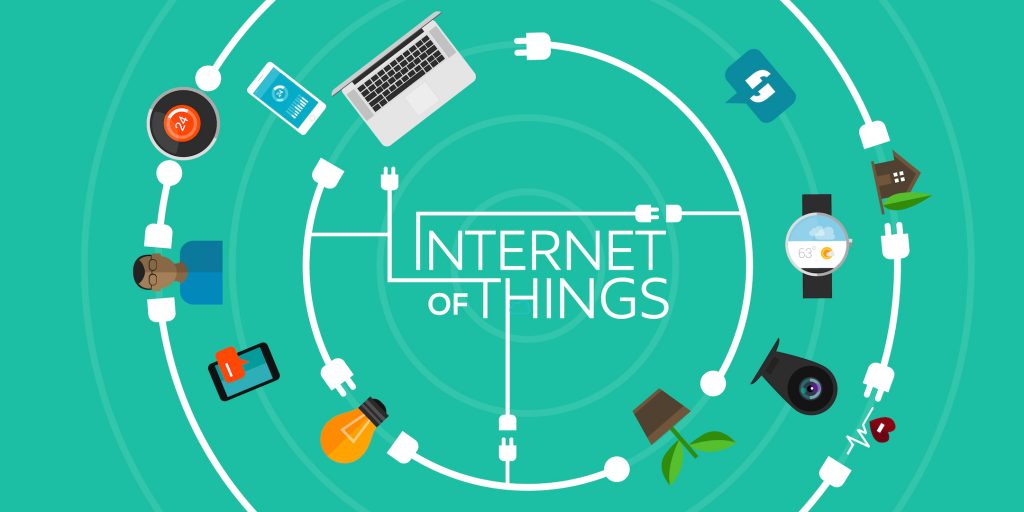
In this article, we’re going define the internet of things in a simple and understandable way and then take a moment to examine the impact it is set to have on the world as we know it. Because it won’t be the world as we know it for very long!
What is the internet of things?
The internet of things is the concept of connecting everyday objects to the internet and to other devices. That includes devices such as smartphones, thermostats, coffee makers, lights and wearable devices such as Fitbit and connected watches.
To give you a practical example, you are five minutes from home and are desperate for a coffee. Rather than waiting until you get home to turn the coffee machine on, you access an app on your smartphone that allows you to turn the coffee machine on remotely. When you get home, the coffee is ready and waiting for you. Well, it’s still in the coffee machine – we’re not talking sci-fi level developments just yet!
That’s one small way the internet of things is already changing the world, but what is the likely impact going to be over the next few years? Let’s take a look…
Your city will interact with you
By 2020, it is predicted that 9.7 billion buildings, street lights, traffic lights, parking meters and other objects in your city will be connected to the internet. This may sound a little like the machines are taking over, but in real terms, this increased connectivity could bring a number of everyday benefits for you. For example, rather than sitting at the traffic lights when there’s no other traffic, the traffic lights will adjust to the flow and allow you through. Research also shows that the average motorist spends four days a year finding somewhere to park. The internet of things will allow empty car park spaces to communicate with your car and tell you where they are. Now surely that’s something we can all get behind.
Your home will predict your needs
It’s also predicted that there will be 13 billion objects in the home that are connected to the internet of things by 2020. In real terms, that means you’ll be able to turn the heating on to warm up your home before you’re even in it. And indeed there are already apps that allow you to do that. However, you’ll also have a kettle that finishes boiling just as you walk down the stairs in the morning and a fridge that reorders the household essentials for you when you start running low. Here are some other connected devices that could change your life at home.
Your doctor will be able to monitor your health remotely
One area of our lives where the internet of things can have the biggest impact is healthcare. The use of IoT devices will allow healthcare professionals to monitor patients more effectively and better understand the symptoms and conditions they are experiencing. The data gleaned from devices such as heart rate monitors, body implants, skin patches and blood pressure monitors will allow doctors to determine and prioritise the healthcare needs of their patients. And the fact that in many instances this will be a remote process, it means you can significantly cut down on your time in tedious waiting rooms. Another popular result, we assume.
It will make exercising more fun
The internet of things will make exercising more enjoyable, quantifiable and interactive. Millions of people already wear Fitbits and other wearable devices to give them information about how they are training, and this popularity will only increase as more and more applications come out. Smart sportswear will allow individuals to turn data into training advice and monitor their progress. Users will also be able to keep an eye on their heart rates and other elements of their health. This is sure to be popular with today’s – or even tomorrow’s – health and fitness-conscious population.
The impact of the IoT will be felt by all of us. For now, all we can do is educate ourselves about the IoT and embrace the potential benefits it can bring now, and in the future.
morganfranklin is author at LeraBlog. The author’s views are entirely their own and may not reflect the views and opinions of LeraBlog staff.
How the internet of things will change your life
Apr 17, 2015
The internet of things stands at the intersection of innovative technology, business, and public policy, and new regulations are needed to ensure that it is creating more good than bad.
Sonita Lontoh
Explore and monitor how The Digital Economy is affecting economies, industries and global issues
Get involved with our crowdsourced digital platform to deliver impact at scale
Stay up to date:
The Digital Economy
License and Republishing
World Economic Forum articles may be republished in accordance with the Creative Commons Attribution-NonCommercial-NoDerivatives 4.0 International Public License, and in accordance with our Terms of Use.
The views expressed in this article are those of the author alone and not the World Economic Forum.
The Agenda Weekly
A weekly update of the most important issues driving the global agenda
Subscribe
You can unsubscribe at any time using the link in our emails. For more details, review our privacy policy.
Источники информации:
- http://www.popularmechanics.com/technology/infrastructure/a29666802/future-of-the-internet/
- http://www.pewresearch.org/internet/2014/03/11/digital-life-in-2025/
- http://lerablog.org/internet/services-internet/how-the-internet-of-things-will-change-the-world/
- http://www.weforum.org/agenda/2015/04/how-the-internet-of-things-will-change-your-life/

